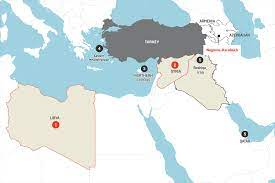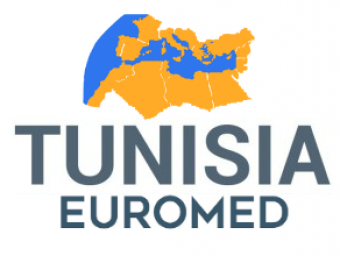
If not for the COVID-19 pandemic, the Libyan Civil War would be at the forefront of 2020’s international headlines. The conflict has all the ingredients of a frontpage story: heavyweight state actors, lucrative natural resources, and strongman leaders. Russia and the United Arab Emirates’ (UAE) involvement in the war should not come as a surprise, but Turkey’s active participation should no longer raise a brow either as Turkey has recently strived to exert more influence over its neighbors with a desire for regional hegemony.
President Recep Tayyip Erdoğan led Turkey’s first major attempt at regional intervention during the 2011 Arab Spring. Mohamed Morsi and the Muslim Brotherhood ascended to power in Egypt with the hope that an Islam-focused group could succeed as a legitimate political party. Erdoğan and his Turkish Justice and Development Party (AKP) supported the Sunni party’s aspirations and aimed to capitalize on this relationship to secure a neighboring ally and economic opportunities.
Morsi and the Muslim Brotherhood, however, were not able to sustain their power in Egypt due to a multitude of challenges. Erdoğan sent his national intelligence chief to support Morsi in the face of massive civil unrest and an impending military coup but to no avail. Morsi was eventually forced out and Erdoğan’s pursuit of influence failed, but it was an uphill battle from the beginning; there were rumors that Gulf states supported the coup. This initial taste of failure, however, may have contributed to more direct, aggressive approaches in future Turkish endeavors.
Turkey’s pursuit of regional influence escalated militarily throughout the course of the Syrian Civil War. Erdoğan’s rhetoric towards Assad and the Alawite-based regime became more reproachful early-on during the crackdowns on civilian protestors. Turkey began providing indirect military support to anti-Assad factions over the years such as the Free Syrian Army (FSA), a mostly Sunni opposition group filled with Syrian military defectors, and even some jihadist groups. Assad, however, has essentially achieved victory at this point largely due to Russian support. Erdogan saw this as another opportunity to gain influence over a fractious country, but direct military inaction hindered his success again.
While supporting Syrian rebel forces against Assad, Erdoğan fought another faction for regional influence – this time within his own borders. Turkey saw an opportunity to dampen Kurdish influence and hopes of separatism when U.S. troops pulled out of the Kurdistan region in October 2019. Turkey used military force to clear out a buffer zone along their southern border that overlapped with Kurdish lands. Even though this involved sharing occupation with Russia, this was a huge victory for Turkey as Erdoğan was able to simultaneously take lands previously occupied by the Kurds and secure a relocation area for millions of Syrian refugees in Turkey, hence diluting the Kurdish population. Here, Erdoğan experienced the positive results of direct military action after years of cautious, proxy interventions.
Fast forward to the present and we see what Turkey’s most brazen and successful foreign intervention could be yet. Libya has been in civil war since the fall of its dictator which led to the establishment of two major factions: the Libyan National Army (LNA), backed by Egypt, UAE, and Russia, and the UN-accepted Government of National Accord (GNA), which recently acquired the support of Turkey.
The relationship between Turkey and the GNA appears to have started after they established bilateral maritime borders favorable to Turkey in the Mediterranean Sea. There have long been disputes of these borders with Greece and Cyprus, but Turkey’s claims may have a little more legitimacy now. The waters are rich with natural gas which Turkey aims to capitalize from to become more energy independent; Greece, Cyprus, and the East-Med project, however, stand in the way.
After the recent LNA offensive failure on Tripoli, the GNA began pushing back and expanding their control of western Libya with Turkish supply of drones and Syrian mercenaries. The GNA are going head-to-head with, not only LNA forces, but also Russian mercenaries led by the active Wagner Group. This may even escalate the proxy war between Egypt and Turkey to a direct military clash if the GNA forces, now supported by Turkish troops, set their course for Sirte and the oil-rich LNA-controlled lands.
Turkey has become increasingly active in regional affairs as it vies for regional influence against traditional powers such as UAE, Saudi Arabia, and Egypt. Erdoğan sees economic and security-related opportunities in these conflicts in addition to an expansion of Turkey’s spheres of influence. The more success Turkey and Erdoğan experience, the more brazen and bold their methods will be. It started with indirect support in Egypt, but now it has evolved into boots on the ground in Libya. Erdoğan sees Turkey as the next great Middle Eastern power, and Libya is the stage to prove it.
.. By Jeffrey Nahm
